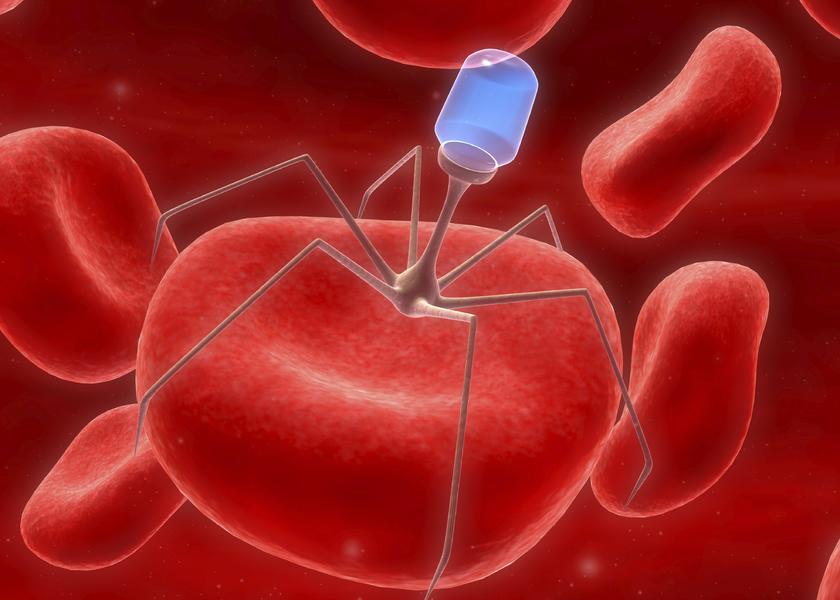Ebola outbreak worsens but a cure may be coming

A free daily email with the biggest news stories of the day – and the best features from TheWeek.com
You are now subscribed
Your newsletter sign-up was successful
Ebola — which first appeared in 1976 in the Congo and Sudan — is a brutal virus, with some strains killing up to 90 percent of people infected. People infected with Ebola, which is transmitted through bodily fluids such as blood, vomit, and diarrhea, can remain symptomless for between 2 and 21 days before being stricken with flu-like symptoms, diarrhea, and vomiting which can lead to the hemorrhaging of the eyes, mouth, and internal organs.
The current outbreak in West Africa is the biggest yet, killing 672 people since February, including at least two American citizens. The disease could potentially start spreading even faster after a Liberian man infected with the virus was allowed to board a plane that made a stopover in Ghana, changed planes in Togo, and died in Lagos, the world's fourth most populous city.
Some even worry that the disease could spread to the U.S. after the wife and children of a Texan doctor who came down with the virus were allowed to fly back to America. CDC director Tom Frieden says the CDC is ready for the possibility: "We do not anticipate this will spread in the U.S. if an infected person is hospitalized here, but we are taking action now by alerting healthcare workers in the U.S. and reminding them how to isolate and test suspected patients while following strict infection control procedures."
The Week
Escape your echo chamber. Get the facts behind the news, plus analysis from multiple perspectives.

Sign up for The Week's Free Newsletters
From our morning news briefing to a weekly Good News Newsletter, get the best of The Week delivered directly to your inbox.
From our morning news briefing to a weekly Good News Newsletter, get the best of The Week delivered directly to your inbox.
The only happy news is that the disease is showing signs of becoming more treatable. Deborah-Fay Ndhlovu of Nature points to a 2012 study that showed that "monkeys infected with Ebola have been cured by a cocktail of three antibodies first administered 24 hours or more after exposure. The result raises hopes that a future treatment could improve the chances of humans surviving the disease caused by the deadly virus."
But sadly, even if this research leads to an effective human treatment, a cure in monkeys is no use to humans infected today.
A free daily email with the biggest news stories of the day – and the best features from TheWeek.com
John Aziz is the economics and business correspondent at TheWeek.com. He is also an associate editor at Pieria.co.uk. Previously his work has appeared on Business Insider, Zero Hedge, and Noahpinion.
-
 Gwen John: Strange Beauties – a ‘superb’ retrospective
Gwen John: Strange Beauties – a ‘superb’ retrospectiveThe Week Recommends ‘Daunting’ show at the National Museum Cardiff plunges viewers into the Welsh artist’s ‘spiritual, austere existence’
-
 Should the EU and UK join Trump’s board of peace?
Should the EU and UK join Trump’s board of peace?Today's Big Question After rushing to praise the initiative European leaders are now alarmed
-
 Antonia Romeo and Whitehall’s women problem
Antonia Romeo and Whitehall’s women problemThe Explainer Before her appointment as cabinet secretary, commentators said hostile briefings and vetting concerns were evidence of ‘sexist, misogynistic culture’ in No. 10
-
 Trump HHS slashes advised child vaccinations
Trump HHS slashes advised child vaccinationsSpeed Read In a widely condemned move, the CDC will now recommend that children get vaccinated against 11 communicable diseases, not 17
-
 FDA OKs generic abortion pill, riling the right
FDA OKs generic abortion pill, riling the rightSpeed Read The drug in question is a generic version of mifepristone, used to carry out two-thirds of US abortions
-
 RFK Jr. vaccine panel advises restricting MMRV shot
RFK Jr. vaccine panel advises restricting MMRV shotSpeed Read The committee voted to restrict access to a childhood vaccine against chickenpox
-
 Texas declares end to measles outbreak
Texas declares end to measles outbreakSpeed Read The vaccine-preventable disease is still spreading in neighboring states, Mexico and Canada
-
 RFK Jr. shuts down mRNA vaccine funding at agency
RFK Jr. shuts down mRNA vaccine funding at agencySpeed Read The decision canceled or modified 22 projects, primarily for work on vaccines and therapeutics for respiratory viruses
-
 Measles cases surge to 33-year high
Measles cases surge to 33-year highSpeed Read The infection was declared eliminated from the US in 2000 but has seen a resurgence amid vaccine hesitancy
-
 Kennedy's vaccine panel signals skepticism, change
Kennedy's vaccine panel signals skepticism, changeSpeed Read RFK Jr.'s new vaccine advisory board intends to make changes to the decades-old US immunization system
-
 Kennedy ousts entire CDC vaccine advisory panel
Kennedy ousts entire CDC vaccine advisory panelspeed read Health Secretary RFK Jr. is a longtime anti-vaccine activist who has criticized the panel of experts